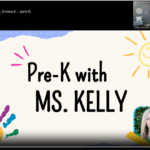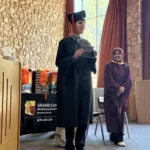When it comes to ensuring a successful education for your child in West Virginia, schools don’t operate in a vacuum. The best learning environments are those that are supported by a strong network of community partnerships. These partnerships can enhance student opportunities, provide real-world connections and offer invaluable resources that go beyond the classroom. Whether your child attends a traditional brick-and-mortar school or participates in an online learning environment, community engagement can play a pivotal role in shaping his educational experience.
Let’s explore how schools with strong community partnerships create enriching opportunities for students, how parents can get involved and how these relationships benefit both children and the broader community. Read on to learn how collaboration between schools and local organizations can help your West Virginia student succeed both in and out of the classroom.
What Are Community Partnerships in Schools?
Community partnerships in education refer to the collaborative relationships between schools and local WV organizations, businesses, governments and families. These partnerships aim to provide students with additional learning experiences, resources and support that they may not receive through traditional educational structures alone.
In many cases, schools partner with local nonprofits, businesses, colleges and even individuals who have specialized skills or resources. These relationships often are designed to complement what students are learning in school and provide them with hands-on opportunities to apply their knowledge in real-world settings.
Why Strong Community Partnerships Matter
In today’s educational landscape, the importance of community partnerships cannot be overstated. These relationships have the potential to enhance learning in several key ways.
1. Expanding Educational Opportunities
Community partnerships often open doors to educational opportunities that students would otherwise not have access to. For example, schools may collaborate with local businesses to offer internships, job shadowing or career mentorship programs. These real-world experiences allow students to apply what they’ve learned in the classroom, helping them gain valuable skills and insights into future career paths.
Additionally, partnerships with local colleges or universities can offer students access to advanced coursework, dual-enrollment opportunities or the chance to visit campuses and learn about higher education options. These experiences can help prepare students for life beyond high school and provide them with a clearer vision of their academic and career goals.
2. Supporting Social and Emotional Development
Strong community ties in WV also can play an essential role in a child’s social and emotional development. Schools that engage with local organizations often provide students with opportunities to participate in extracurricular activities, volunteer opportunities or community service projects. These experiences help students develop important life skills such as teamwork, leadership and empathy, all of which are essential for personal growth and success in the workforce.
Additionally, partnerships with local mental health organizations or counseling services can provide students with additional support for their emotional well-being, particularly in the face of challenges such as stress or family issues. A well-rounded education isn’t just about academic achievement, it’s also about fostering the mental and emotional health of students, preparing them to thrive in all aspects of life.
3. Enhancing Parent Involvement
For parents, one of the most valuable aspects of community partnerships is the opportunity to become more involved in their child’s education. Schools that foster strong community relationships often encourage parent engagement through events, workshops or volunteer opportunities. This collaboration allows parents to have a more hands-on role in their child’s academic journey and provides them with resources to help support their child’s learning at home.
When parents are actively engaged in their child’s education, students more likely will perform better academically and socially. Research has shown that when schools and families work together, children tend to have higher test scores, better attendance and fewer behavioral problems. Strong community partnerships can bridge the gap between home and school, creating a support system that benefits students’ academic success.
Examples of Successful School-Community Partnerships
Several schools across the country have set the standard for strong community partnerships. Here are a few examples of how these collaborations can be implemented.
- Business Partnerships and Internship Programs – In many communities, schools have partnered with local businesses to create internship and mentorship programs. For example, a high school might team up with a local tech company to provide students with hands-on experience in coding and software development. These students not only learn valuable skills but gain a glimpse into potential career paths.
- College and University Collaborations – Many schools collaborate with nearby colleges and universities to provide students with early access to higher education. These partnerships may include dual-enrollment programs, where high school students take college-level courses for credit or college readiness workshops that help prepare students for the admissions process. These opportunities help bridge the gap between high school and college, ensuring students are better prepared for the challenges ahead.
- Local Nonprofits and Community Service Projects – Community service projects are a great way for students to make a positive impact in their communities while also learning important social skills. Schools that partner with local nonprofits often offer students opportunities to volunteer or participate in community development initiatives. These experiences help students develop empathy, leadership skills and a sense of civic responsibility.
How Online Schools Benefit from Community Partnerships
While traditional schools have long benefited from community partnerships, online schools also can take advantage of these relationships to enrich their students’ educational experiences. Although students in online education programs don’t attend physical schools, they still can engage with their communities in meaningful ways.
Online schools can partner with local organizations to provide students with virtual internships, workshops or volunteer opportunities. In some cases, online schools also collaborate with local businesses or colleges to provide students with access to career readiness programs, college preparation resources or specialized courses.
For parents considering online education for their child, understanding how these virtual schools foster strong community relationships can be an important consideration. Even in a digital environment, community engagement plays a crucial role in providing students with well-rounded educational experiences.
How Parents Can Get Involved
As a parent, you play a pivotal role in helping your child take advantage of these community partnerships. Here are a few ways you can support your child’s involvement.
- Encourage Participation: Talk to your child about the opportunities available through school-community partnerships, whether they involve internships, volunteer work or extracurricular activities.
- Stay Informed: Keep in touch with your child’s school to learn about new community partnerships or programs that may benefit him.
- Volunteer: Many schools look for parent volunteers to help with community events or support programs. Volunteering not only benefits the school but strengthens your connection to the community.
Schools with strong community partnerships provide students with the tools, opportunities and support they need to succeed both academically and personally. By creating collaborations with local organizations, businesses and colleges, schools are able to offer real-world experiences, mentorship and valuable resources that help students thrive. Understanding how these partnerships can benefit your child can help you make informed decisions about his education—whether he attends a traditional school or participates in online learning.

















